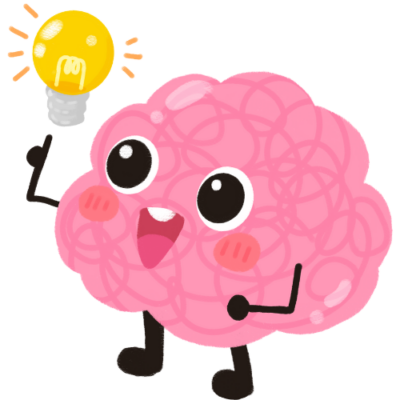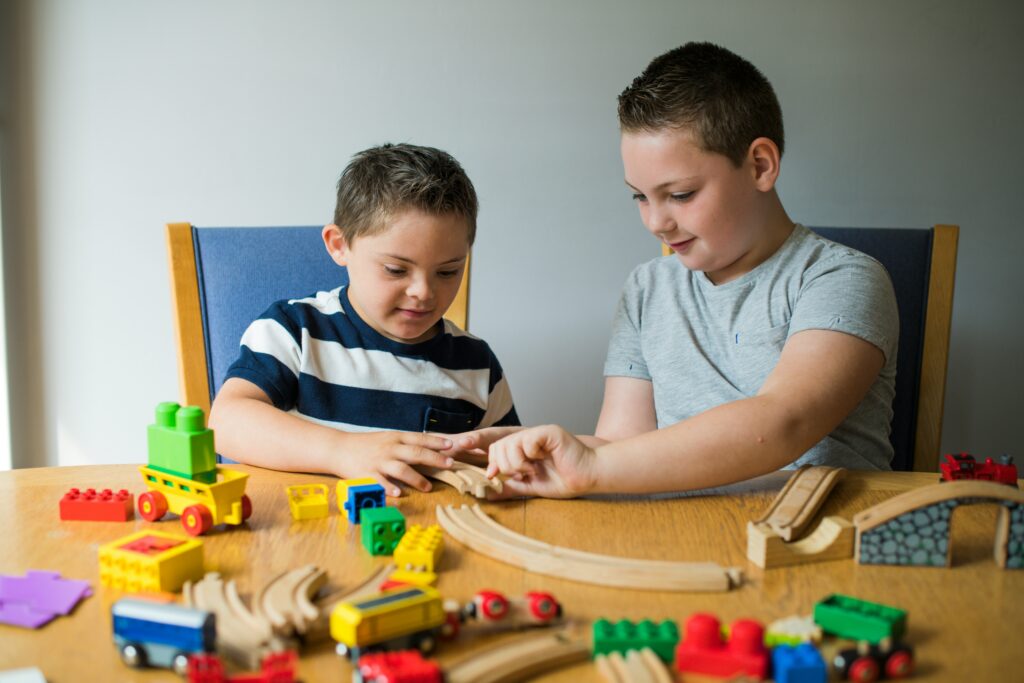What is Autism?
Autism is a neurotype; a developmental condition that includes differences in the structure and function of a person’s brain, creating a different way of working for that person.
Every autistic person experiences and interacts with the world in their own unique way. At Superyou, our strengths-based approach focuses on the positives of being a unique individual.
As we like to say, if you’ve met one autistic person, you’ve met one autistic person! Everyone is different.
Receiving an autism diagnosis enables kids and adults with autism to access better help and support that empowers them to live their lives to the fullest.
Service Spotlight
An autism diagnosis enables kids & adults with autism to access better help & support that empowers them to live their lives to the fullest.
Our diagnostic team promotes a neurodiverse affirming approach that priorities our client’s individual strengths & differences.
We accept referrals from GPs, paediatricians, psychiatrists, & other allied health professionals.
Appointments available in our Perth clinics (Currently offered at our Fremantle clinic).
Assessment costs:
- Comprehensive (Speech Pathologist & Psychologist) – $3997
- Single (Speech Pathologist or Psychologist - for Adult Assessments only) – $2747
Clients receive diagnostic reports within 4 weeks after assessment.
What’s the Purpose of an Autism Assessment?
The primary purpose of an autism assessment is to determine whether a person meets the criteria for autism.
Receiving a formal diagnosis is another step in the journey of understanding someone better, whether that someone is you, your child or a loved one!
It also helps you gather valuable insights into their strengths and the support requirements they need across various settings, like school, work and home.

AUthentic Assessments at Superyou

Autism assessments at Superyou involve a diagnostic team made up of psychologists and speech pathologists.
Our team meets with the individual and uses a range of different methods and tools to support that individual in exploring whether they meet an autism diagnosis.
We conduct autism assessments in a neurodiverse affirming way that prioritises each client’s individual strengths and differences.
This authentic approach incorporates a whole person perspective to our autism assessments, empowering clients with a report that provides the most accurate results and ideal recommendations that best suit them and their needs.
The role of a paediatrician in autism assessments for kids
- You do not need a referral from a paediatrician to begin. At Superyou, our autism assessments can be started right away, even while you’re on a paediatrician waitlist.
- Our comprehensive assessments are conducted by a psychologist and a speech pathologist. These are aligned with best practice guidelines and provide a solid foundation for diagnosis and support planning.
- We strongly recommend that your child see a paediatrician, but there’s no need to wait to get started with us. Many families face a 6–12 month wait for a paediatrician appointment, and we can begin the process in the meantime.
- When your child does see a paediatrician, they can review our completed assessment and contribute their own medical report. This completes the diagnostic team required by the Autism CRC’s National Guideline, which includes a paediatrician, psychologist, and speech pathologist.
From referral to report: Receiving an autism assessment in 5 steps
Step 1: Complete the Onboarding Process
To get started, simply fill out our online form. Referrals aren’t required, but we accept them from GPs, paediatricians and psychiatrists. From here, you will be contacted by a Superyou Client Relationship Officer to begin receiving the necessary information and details to progress with the assessment.
Step 2: Pre-Assessment Details
Next, you will be contacted by a Superyou Client Relationship Officer to begin receiving the necessary information and details to progress with the assessment.
Step 3: Interview & Assessment
Then, you'll have a formal assessment scheduled in with our diagnostic team. During the assessment, the team will consider individual differences and strengths, to ensure the most accurate assessment outcome.
Step 4: Finalising Diagnostic Report
Once the assessment is finished, our team will analyse, score and interpret the assessment into a diagnostic report before sending it through to you and/or your referrer for review.
Step 5: Optional Feedback Session
We offer a completely optional feedback session where clients can ask any questions about the report and our recommendations.
Get started on your journey with Superyou!
Fill out our assessment form or enquire now about our authentic autism assessments.
FAQ's
How do I know if I or my child should seek an autism diagnosis assessment?
It can be challenging to identify the signs and behaviours that may indicate that an individual
is autistic, as every autistic person is unique!
However, if you have noticed that your child’s development is different to their same-age
peers; it can be helpful to discuss this with other people who know your child well, such as
their child health nurse, daycare educator, teacher, therapist, GP or paediatrician
What’s the difference between a single and a comprehensive assessment at Superyou?
A Single Assessor Assessment involves either one of our psychologists or speech therapists and is suitable for cases where a full multidisciplinary team may not be required. Such as, the client has already been assessed by one of these clinicians and needs the other to contribute to the team consensus. This type of assessment is available for adults only (18yo +).
A Comprehensive Assessment includes both our psychologist and a speech therapist and is recommended for anyone under 18yo to ensure a multidisciplinary team consensus. These clients may still require paediatrician input either before or after our assessment for the diagnosis to be acknowledged by some government departments, such as the NDIS or the Education Department.
How do I know if I need a single or comprehensive assessment?
The type of assessment depends on the individual’s age and goals:
· Children under 18yo require assessment by a paediatrician, psychologist, and speech therapist.
· Adults aged 18+ can see either a psychiatrist or clinical psychologist that are trained in completing autism assessments or both a psychiatrist and psychologist. We recommend clients wishing to obtain funding through the NDIS to see a psychiatrist in conjunction with our adult assessment.
A comprehensive assessment may be required by agencies like the NDIS or schools for funding or support eligibility.
What is the cost of an Autism Assessment?
- Comprehensive Assessment (Psychologist & Speech Therapist): $3,997.00.
- Single Assessment (Psychologist or Speech Therapist): $2,747.00.
How does payment for the assessment work?
- Comprehensive Assessment (Psychologist & Speech Therapist): $3,997.00.
- Single Assessment (Psychologist or Speech Therapist): $2,747.00.
Does the NDIS cover the cost of Autism Assessments?
- Comprehensive Assessment (Psychologist & Speech Therapist): $3,997.00.
- Single Assessment (Psychologist or Speech Therapist): $2,747.00.
Am I eligible for a Medicare rebate on the cost of assessment?
No, the NDIS does not cover the cost of autism assessments.
Can I claim a Medicare rebate for the assessment?
Paying a booking confirmation fee is common for high demand services such as autism assessments.
Your booking fee is included in the total assessment cost, and acts as a deposit to secure your appointment.
Why do I have to complete a pre-assessment form?
Yes, clients may be eligible for a Medicare rebate if they have a referral from a paediatrician or psychiatrist. The rebate they’re eligible for depends on their individual circumstances and we cannot give them the exact amount. It may be around a couple hundred dollars.
What happens during the assessment?
Each assessment will differ on a case-by-case basis.
However, we start each assessment off by having you complete our pre-assessment form, which provides information on the person being assessed, as well as share with us any relevant supporting documentation, such as reports from other providers.
On assessment day, parents participate in a clinical interview, while their child engages in a standardised assessment, informal play session or other assessments such as pragmatic speech or cognitive assessments. Adult clients will participate in a clinical interview with our
psychologist.
Supporting evidence collected outside of the assessment appointment will also be considered, and we may liaise with teachers, school psychologists, therapy clinicians, and review reports from allied health professionals, paediatricians and psychiatrists.
In some cases, further information may be required, and a school or daycare observation will
be scheduled.
We’re dedicated to carrying out observations with empathy, compassion and authenticity with our main goal being to ensure the client is supported and comfortable to just be themselves!
What diagnostic tools are used?
For children, the process includes a clinical interview with the parent/guardian, a standardised assessment and informal play or cognitive and speech evaluations.
We use two rooms to carry out both parts separately. Psych will interview the parents in one room while the speech pathologist does assessments in the other room with the child. Then they will swap once complete.
Additional observations, such as school or daycare visits, may be arranged, if necessary, after the assessment date.
For adults, it involves a clinical interview, and specific diagnostic tools tailored to their experiences, done with the psych only.
Adult assessments are usually split into two sessions, one session is the clinical interview and the second diagnostic tools and assessments. One in person is preferred.
How long does the process take?
We use a combination of:
- Autism Diagnostic Observation Schedule-2 (ADOS-2)
- DSM-5 diagnostic criteria for autism
- Vineland Adaptive Behaviour Scales-3 (optional online questionnaire for caregivers)
- Cognitive or language assessments if required
- Clinical interview
What happens after the assessment?
- An invoice is sent to the client on the day of their assessment for payment.
- Payment of the invoice is due 3 weeks after the assessment date to allow for release of their report.
- A detailed diagnostic report with tailored recommendations is provided 4 weeks after the assessment. Please note that delays in the assessors receiving the necessary intake information or supporting documentation can extend the time it takes to finalise Autism Assessment reports.
- Upon receipt of the report, an optional 30-minute Telehealth feedback session is offered to clients to clarify findings and discuss next steps. These Telehealth feedback sessions are offered on Tuesday only from 2pm onwards.
Will my child still need to see a paediatrician?
We don’t require a referral from a paediatrician in order to complete our assessment. But you will likely still need to see a paediatrician for a full diagnosis for children.
This is because an autism diagnosis must be made by a diagnostic team of a psychologist, a speech pathologist and a paediatrician before the NDIS will consider it a formal diagnosis.
The Autism CRC’s National Guideline for the Assessment and Diagnosis of Autism states it’s best practice for an autism assessment to be completed by a diagnostic team (inclusive of a paediatrician, psychologist and speech pathologist) as this ensures diagnostic accuracy and also tailored support planning.
Is a comprehensive assessment required for individuals over 18 years old?
While it depends on individual needs, a comprehensive assessment is not generally recommended for individuals over 18yo.
We would recommend a single assessor assessment with the psychologist and for clients to see a psychiatrist to sign off on diagnosis. If the client has communication/speech challenges we may recommend a comprehensive assessment so that speech input can be assessed, this will need to be flagged to the clinical team, if mentioned.
Why is there a $100 booking confirmation fee?
The fee secures clients appointments and is applied toward the total cost of the assessment. This ensures clients are committed to the service and guarantees their place, given the availability for high-demand services like Autism Assessments, we need to confirm bookings.
What recommendations are included in the report?
The diagnostic report includes tailored recommendations for interventions, therapy options, school accommodations, and, where applicable, strategies for accessing support like the NDIS.


